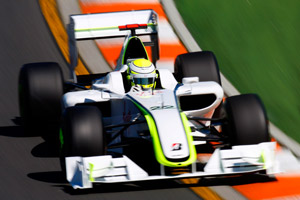xpensive wrote:Thanks moan. However, as I tried to explain on my thread on the subject, the major energy-loss is not from accellerating an F1 car to a certain speed, but to maintain it, where recovery of kinetic energy, even if 100% efficient, will never be the big thing Max and others seem to believe.
F1 needs a total paradigm shift.
If they instate a maximum downforce level then the teams will work to lower the Cd and thus make the cars easier to push thru the air. Right now KERS is only implemented on the rear wheels, when we all know a majority of the braking is done by the fronts,
imagine if they were to abolish braking altogether and the only reduction in speed could be accomplished by regen braking. Together with DI turbo'd engines with a set maximum amount of fuel HERS, KERS, movable aero, and whatever other effiency ideas the engineers can think of would lead to a next level formula which would finally take us out of the technology of the mid nineties into today's technology. That formula would lead to cars just as fast as todays and be several orders of magnitude more efficient than the current formula.
Xpensive, the problem is not that KERS will never be as big as some percieve it to be, the problem is that the current paradigm to which F1 cars are designed is too constrictive to allow it to thrive.
Finally the FIA is allowing new tech to enter the sport, instead of banning it as it did with active suspension, TC, LC, ABS, ground effects, moveable aero, mass dampers and so much more. But yet many of the fans of F1 are opposed to the addition of the new tech after complaining that the sport was stagnant for so long. Pick a side, do you want F1 to be stuck in the mid nineties for decades to come like how NASCAR tech is stuck in the sixties or do you want progress, regardless of how little fuel it will save?




